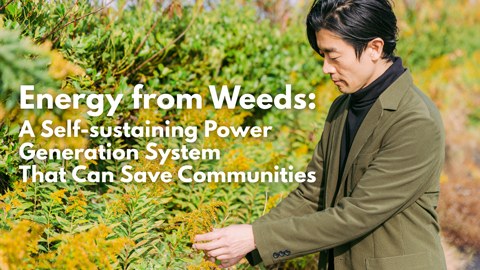Insufficient education is cited as one of many social issues facing Africa today. To help educate children in impoverished parts of the continent, a Japanese startup company is providing support using esports as an entry point. This unique project introduces young people to the joy of learning through the fun and excitement of gaming.
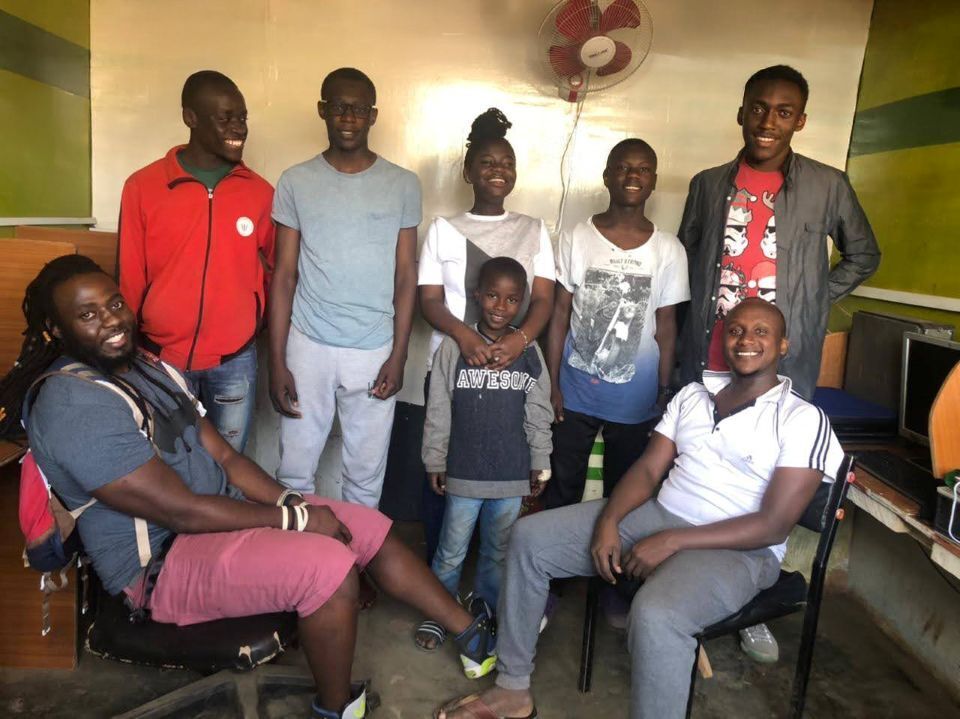
A programming class held in Kibera, one of Africa’s largest slums, in August 2021. At far left is world-class professional gamer Brian Diang’a (known in the gaming world as Beast), who collaborates with Reev Inc.
According to a 2023 report by UNICEF and the World Bank, 333 million children worldwide suffer from “extreme poverty.” The problem is particularly pronounced in sub-Saharan Africa, the part of the continent south of the Sahara Desert. One underlying cause can be found in low completion rates for primary and secondary education. The rate of primary education completion in this region is around 61%, while lower secondary education falls below 40% (from UNICEF’s 2023 report The State of the World’s Children). Meanwhile, the literacy rate for ages 15 and above stands at only 68% overall (according to the UNESCO Institute for Statistics in 2023). Due to insufficient basic skills in reading, writing, and arithmetic, young people find it difficult to get jobs. Even as adults, they cannot achieve economic independence, leading to an unbroken cycle of poverty.
Reev Inc., a Japan-based startup company, is taking a unique approach to solving this educational crisis through esports based in Kenya.
Before founding Reev, CEO WATANABE Yusuke had been successfully operating esports ventures and other IT-centered businesses, generating steady profits while doing business in Japan, the Philippines, Vietnam, the United States, and elsewhere. However, his thinking underwent a major transformation when the COVID-19 pandemic began to spread around the world at the end of 2019.
“Unable to travel overseas and expand our business as I’d planned, I was instead exposed to the Buddhist teachings preached by my father-in-law, who is a priest, and had time to think deeply about how I wanted to be and how I wanted society to be,” says Watanabe.
Over time, the desire emerged in him for a society full of energy and possibilities that went beyond his own profit. Among his influences were the Buddhist teachings that all lives have equal value and that one should live with an “altruistic heart.” These fueled his aspiration to help solve global-scale social issues so as to open up the future for people in disadvantaged environments or challenging circumstances. The result was the establishment of Reev.
Watanabe explains, “I focused my attention on Africa, which faces such serious problems as educational disparities, poverty, conflicts, and refugees. I inspected places like the floating slum of Makoko in Nigeria and witnessed firsthand how many children want to go to school but cannot due to poverty.”
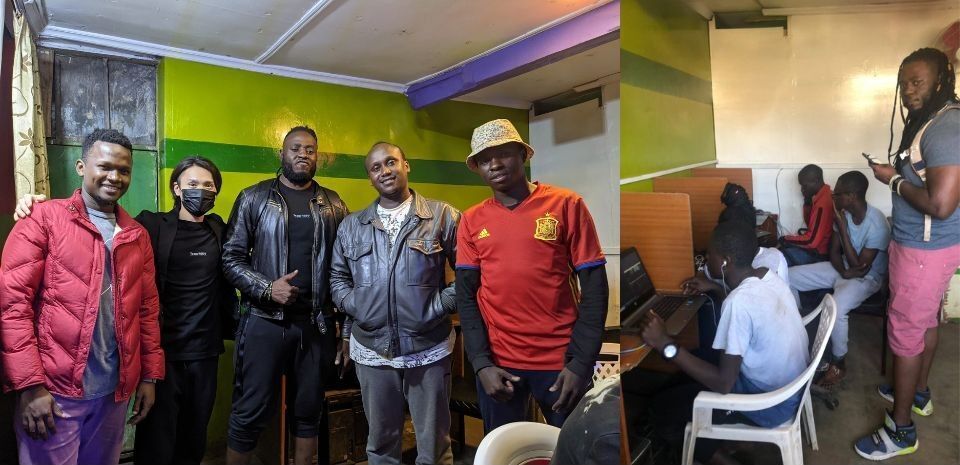
Left: An internet cafe in Kibera where esports experience sessions and programming classes are held. Reev CEO WATANABE Yusuke is second from left, and Beast is in the center.
Right: A programming class in August 2021.
It occurred to Watanabe that he might be able to support Africa through esports, his field of expertise. In recent years, esports have earned global attention not just as entertainment, but also as a positive educational influence by sparking motivation to study programming, design, and video editing, as well as enhancing self-esteem.
Watanabe’s vision received a significant boost when he met Brian Diang’a, a world-class professional gamer who goes by the name of Beast, in Nairobi, Kenya, one of his inspection destinations. Born in Kibera, one of Africa’s largest slums, Beast related to Watanabe’s idea of eliminating educational disparities in Kenya, and ultimately all of Africa, through ICT and esports. He joined Reev’s gaming team and they became collaborators.
Specifically, they used the internet cafe operated by Beast to offer opportunities to young people and children in the slums to experience gaming, support esports events aimed at discovering and developing future players, and hold lectures by Beast. They also established programming classes that extended beyond just gaming.
Thanks to his standing as a beacon of hope in Kibera, Beast has been an extremely effective mobilizer. Children who participate in these events have begun envisioning successful futures as professional gamers like Beast or as game development engineers.
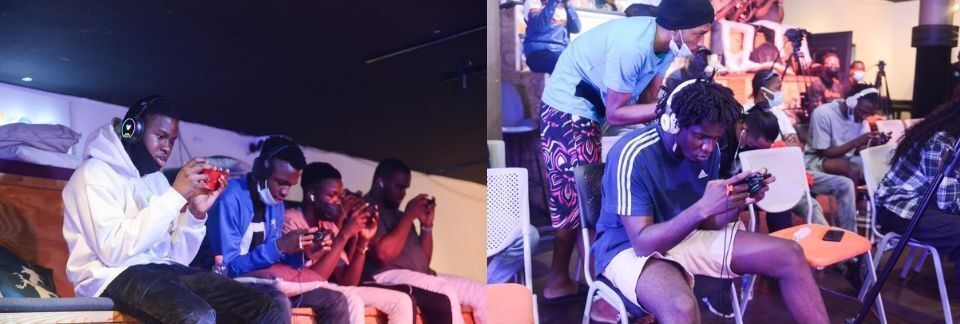
Scene from an esports tournament that connected Nigeria and Japan online for matches. It was held for the purpose of international exchange and mutual recognition, and PR between the two countries.
To further expand participants’ future options, in May 2025, Reev released a free learning platform titled “NOLB (No One Left Behind).” By following the explanations in the video materials, even beginners can develop games using programming language.
“While there are still infrastructure vulnerabilities like the power supply, nearly 90% of local people own smartphones, and the environment for accessing IT is improving. Even kids born and raised in an economically disadvantaged environment can learn all kinds of content, including programming, if there is an internet environment,” Watanabe declares.
He adds: “They can even earn money by giving form to their accumulated knowledge and their own ideas, and disseminating them to the world. I want as many children as possible to aim for such a future. Also, acquiring a programming mindset helps train them in logical thinking and problem-solving skills. I believe it also helps them cultivate the adaptability needed to survive in an unpredictable era.”
Esports have the power not only to bring joy and excitement to many people across national borders, but also to create learning opportunities, foster human growth, and change lives for the better. The initiatives of Reev in Africa appear poised to serve as proof of this power.
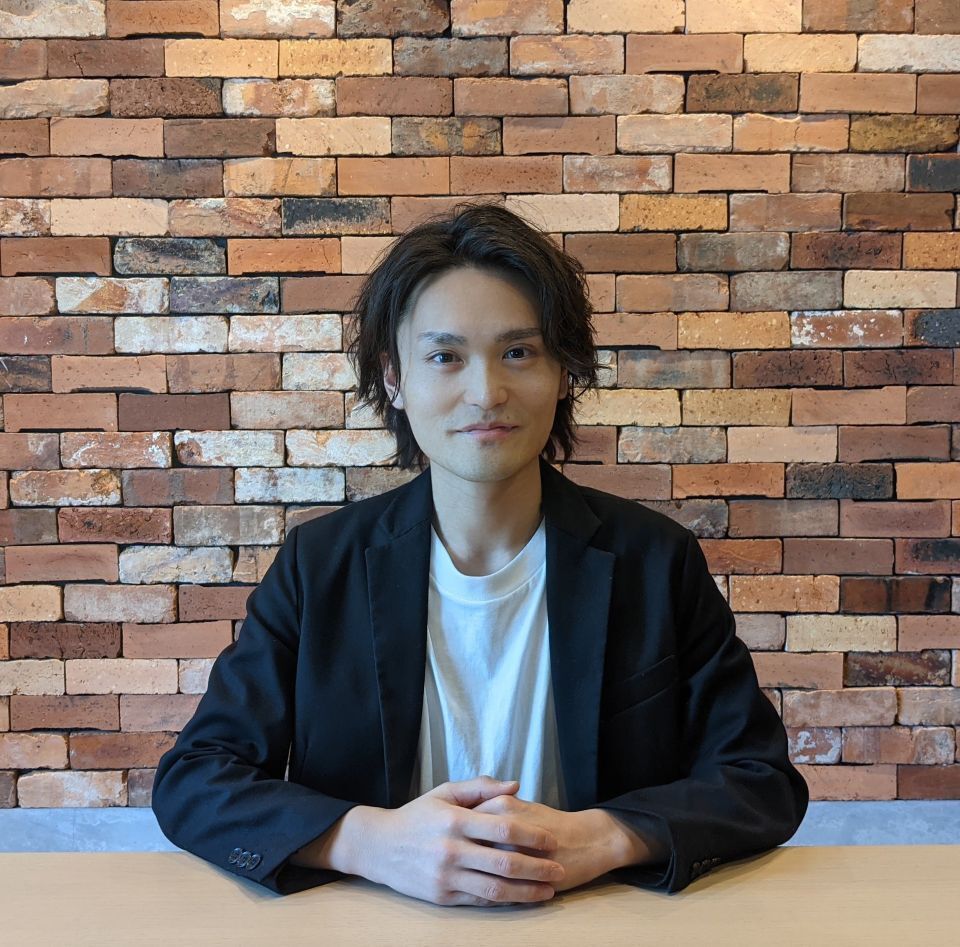
Watanabe, CEO of Reev.




























